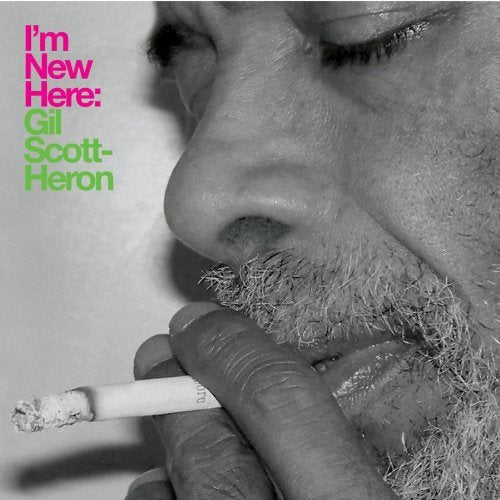Pengantar tentang Gil Scott-Heron
The Revolutionary Poet/Musician's Music Is As Important As Ever
Jika nama Gil Scott-Heron tidak segera dikenal, puisi-puisinya pasti akan. Scott-Heron, seorang penyair blues dan jazz yang tercemerlang di tahun 1970-an melalui komentar sosial dan politiknya yang penuh jiwa dan sangat tajam, menulis salah satu puisi paling terkenal sepanjang masa: “Revolusi Tidak Akan Disiarkan di Televisi.” Sebuah perspektif cerdas tentang konsumsi massal dan keserakahan kapitalis yang mengabaikan kepedihan dan pemberontakan yang sangat nyata yang terjadi di pinggiran masyarakat. Sebuah puisi yang telah memengaruhi hip-hop/rap dan, ironisnya, digunakan dalam iklan dan trailer film hingga tahun ini (seperti dalam trailer Black Panther).
nMusik dan puisi Gil Scott-Heron adalah secercah gambaran dari negara yang dalam gejolak: masih terkejut dari pembunuhan MLK, Malcolm X, dan JFK, perang Vietnam, dan trauma universal dari kehidupan kota. Karya Heron meluncur liar di antara kemarahan, penghinaan, sarkasme, kesedihan, kegelapan, kebencian, dan ketidaknyamanan. Heron melukis visi sebuah kelas bawah yang telah terlalu lama tertekan dan berada di ambang meledak, dan sulit tidak menarik perbandingan dengan perjuangan tahun 2017, saat negara terus saling merobek.

Small Talk at 125th and Lenox
Scott-Heron’s first album, Small Talk at 125th and Lenox, debuted in 1970 including “The Revolution Will Not Be Televised” as well as incredibly acidic, confrontational social commentary on poems like “Whitey On The Moon” and “Comment #1”; a poem many might recognize as being sampled by Kanye West on My Beautiful Dark Twisted Fantasy. Performed for a small audience in a recording studio, Small Talk leans heavy on Heron’s brutal poetry over congo drums, but also contains soul records such as “Who’ll Pay Reparations On My Soul” a melancholic repudiation of America’s treatment of its black people. Heron could be incredibly vulnerable and aggressive in his delivery; insensitive and dismissive, but always impassioned.

Pieces Of A Man
Gil Scott Heron was a raw, captivating artist but it was when he released Pieces Of A Man in 1971 that his true influence and talent shone bright. Pieces Of A Man was a fusion of blues, jazz and a vocal style that would eventually evolve into rap. Heron, along with musician Brian Jackson, turned his natural rhythms and acerbic social and political insight into a soulful and hip blues record that went on to critical acclaim and became a major influence on hip-hop. Beyond the political, Pieces Of A Man was also deeply personal and vulnerable. “Home Is Where The Hatred Is” is an aching blues testimonial of pain and grief, while the beautiful and delicate title track captures the feeling of defeat and loss of self with Heron’s sweet, lonesome voice moves like ocean waves, effectively capturing struggle and heartbreak. Pieces Of A Man is a showcase for Heron as a singer and musician, the gravity with which his voice expresses the Blues of the sadness and depression of common life in turbulent times.

*Free Will*
Heron’s next album, Free Will, combined the more militant, caustic style of Small Talk with the jazz and blues fusion of Pieces Of A Man. Free Will featured more proto-rapping about poverty, institutional racism and the abuses of power by the people in charge while still infusing the soulful, powerful production that made Pieces Of A Man so gorgeous. Free Will would be one of the last times that Heron would focus on militant, revolutionary poetry in favor of a more pan-african, black unity while still singing about the complexities and pains of being alive.

Winter In America
With his next album, Winter In America, Heron began to make more jazz fusion and conceptual records focused on Afrocentricity, love, pain and addiction. These themes would continue with the rest of the music he made until his untimely death in 2011. Critical reception has considered Winter in America Heron and Jackson’s greatest work together --allowing for a template that would serve to influence neo soul and Hip-Hop music. Winter in America sounds much like its title: encompassing the social, economic and political blight and anxieties of the time it was recorded.

I’m New Here
After repeated stints in and out of jail on drug charges over the previous decade, Gil Scott Heron returned in 2010 with a new, gripping set of blues records for the modern age. His trademark gentle baritone voice had become more rugged and unnerving but no less hypnotic. Time, sorrow and drugs had worn him down physically but he still had plenty to say about society and the pitfalls of life over crisp, funky hip-hop production and lowly, sparse orchestral sound in beautiful songs and poems such as “Me and The Devil” and “Where Did The Night Go”. The true album standout though is the gorgeous “I’ll Take Care of You” which would later be interpolated by Drake and Rihanna for their song “Take Care.” The album would be remixed by Jamie XX the next year after Scott-Heron died; both versions are worthwhile.
Heron’s musical and poetry legacy was long, influential and encompassed the times in which they were recorded. But it is Heron’s early work --his militant and vulnerable work about plight and those who suffer from it-- that has stood the test of time. In 2017, his work holds as much weight as it did in the early ‘70s. Gil Scott Heron’s work would lay the blueprint for rap, while also acting as a snapshot for an America that continues to repeat the same mistakes over and over again. His music and poetry is more important now than ever before.
Israel Daramola is a freelance writer and photographer in Washington, D.C.. He just wants to write about punks and dystopias.
Bergabung dengan Klub!
Bergabunglah sekarang, mulai dari 44 $Exclusive 15% Off for Teachers, Students, Military members, Healthcare professionals & First Responders - Get Verified!




